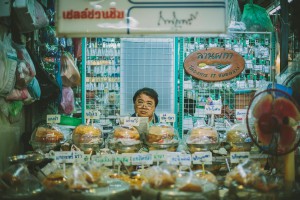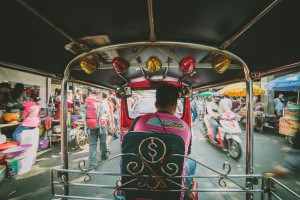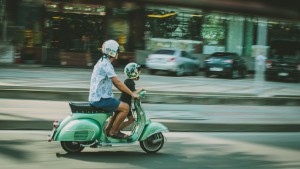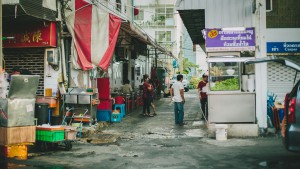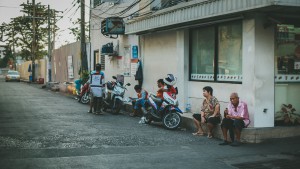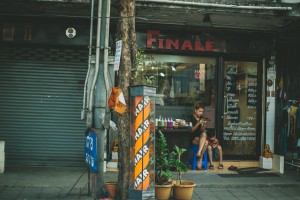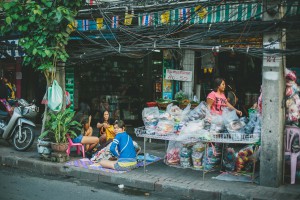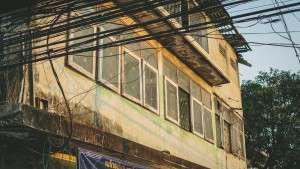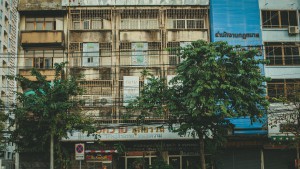This series of travel blogs from February 12th to March 1st is made possible by WIEGO. Georgia Street Media is proud to partner with Director/Producer Lori McNulty (http://www.lorimcnulty.ca/) to produce a short documentary for WIEGO and help tell the story of informal workers around the world and their health care issues.
Yesterday we explored the Chatuchak Weekend Market. With over 15,000 stalls, it’s the biggest weekend market in the world. A veritable maze of stalls, shops, and carts, the market offers pretty much everything you need and even more that you don’t. Our prime object for the visit was to get some footage of the street vendors in action…
Street vendors are just one example of workers in the informal economy, which is the group that WIEGO strives to represent. A global action-research-policy network that seeks to improve the status of the working poor, especially women, they are an organization that is trying to raise awareness of the importance of health care for people in this demographic – both for the informal workers themselves as well as those in a position to help them develop socially.
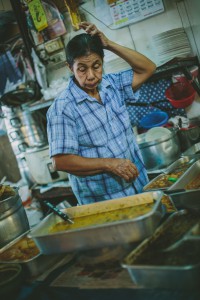
WIEGO is trying to make it easier for workers with little legal or social support to access health care without having a negative impact on their jobs or families
After sampling fresh squeezed pomegranate juice, iced coconut water, and searching for a few gifts, we decided to ride a tuk-tuk back to our hotel. The driver snaked through crowded streets and careened down busy highways in the rickety open aired vehicle – I almost went over the side on a tight turn while trying to get a shot, but we eventually got back in one piece.
The next day we got up early and met with our translator and guide, Chon. We got in a van and headed toward another hotel where dozens of domestic migrant workers from Myanmar were meeting to discuss insurance and go through a workshop on sexual health and birth control. Let’s just say things got a little too graphic for the professional nature of this blog and leave it at that.
We conducted a number of interviews with the participants there, including Kan, a Thai native working in a Bangkok household; Poonsap, a socia worker of more than 30 years and Manager of HomeNet Thailand; as well as a couple informal workers from Myanmar who requested not to have their faces shown on camera for fear of repercussions for their families back home. As you can imagine, conducting interviews through a translator is a long and arduous process, made worse by crouching in a puddle of your own sweat. The best light always seems to be in the warmest and stuffiest locations. Chon was a trooper, however, and helped facilitate the language barrier to get what we needed.
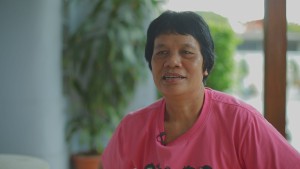
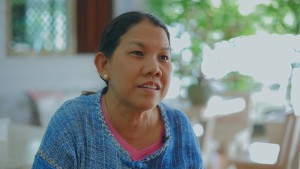
Kan and Poonsap telling us their stories

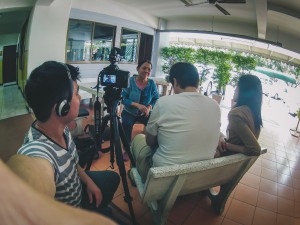
Anonymity required us to do some creative framing and shoot against a window. Elsewhere, I work on my Asian squat while shooting
Sweaty and mind-numbed, we finally piled back into the van after a long day of shooting. Then of course I had to shoot more out the window as we drove back:

